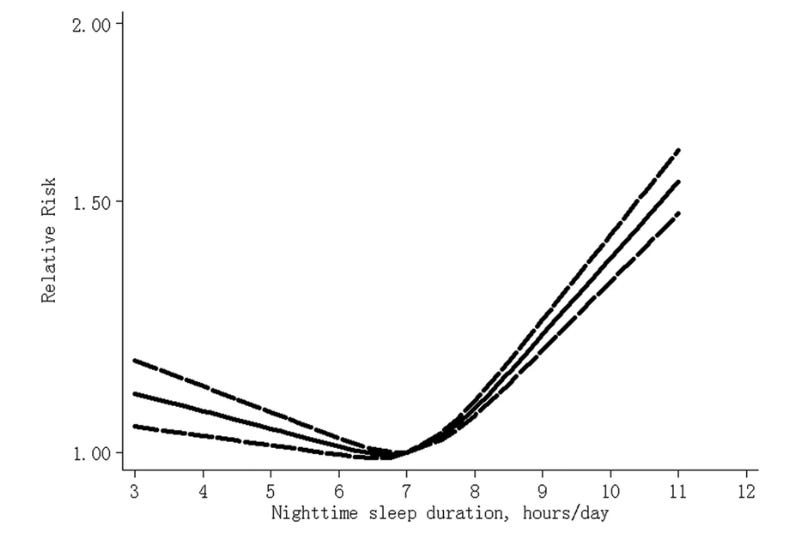Sleeping Through the Hype
A Reality Check on Rest and Longevity
In recent years, sleep has become the darling of health and longevity experts. Everywhere you turn, someone's extolling the virtues of a perfect night's rest, claiming it's the key to a longer, healthier life. While sleep does play an important role in our well-being, some of these claims might be giving you nightmares about your own sleep habits. Before you lose sleep over losing sleep, let's take a look at what the science says about rest and longevity. As it turns out, the relationship between sleep and a long, healthy life is more nuanced than many headlines might have you believe.
The Nine-Hour Reality vs. The Seven-Hour Ancestry
Contrary to popular belief, modern Americans are actually getting more sleep than we might expect. According to the American Time Use Survey - 2023 Results, the average sleep duration for adults in the United States is just under nine hours per night1.This might come as a surprise to many who feel constantly sleep-deprived. Intriguingly, research on hunter-gatherer societies shows a significantly lower average, with these populations averaging about seven hours of sleep2. This disparity between modern sleep patterns and those of our ancestors raises interesting questions about the amount of sleep we truly need and how our lifestyles have impacted our rest habits. It suggests that while we may be sleeping more, the quality of our sleep and our perception of rest might be influenced by factors beyond just duration.
The Goldilocks Zone of Sleep Duration
While conventional wisdom often touts the benefits of more sleep, recent research paints a more nuanced picture. A meta-analysis of prospective cohort studies found that sleeping longer than the average 7 hours may actually be more damaging to health than sleeping less3. For example, sleeping five hours nightly increases the risk of premature death by 4%, compared with a 37% increase for sleeping nine hours. This finding challenges the notion that more sleep is always better and highlights the importance of finding your personal sleep sweet spot.
Napping: A Double-Edged Sword
For those who struggle to achieve six hours of nighttime sleep, there's good news. A dose-response meta-analysis of cohort studies revealed that taking naps is fine for individuals who get less than six hours of nocturnal sleep but increases the risk of premature death by 10% per 30 minutes of napping for those sleeping more than six hours4. This suggests that for short sleepers, naps might be a neutral or potentially helpful strategy, while those getting adequate nighttime sleep should be cautious about regular napping.
Sleep Hygiene: The Foundation of Restorative Rest
To optimize your sleep, consider implementing these evidence-based sleep hygiene practices:
Create a sleep sanctuary: Ensure your bedroom is dark, cool, and quiet. Invest in blackout curtains, a comfortable mattress, and consider using sleeping ear plugs if external sounds are an issue. (White noise does not appear helpful5.
Establish a wind-down routine: Avoid screens, intense exercise, and heavy meals in the hours leading up to bedtime. Instead, engage in relaxing activities like reading, gentle stretching, or meditation.
Be cautious with sleep aids: While melatonin supplements can be helpful for some individuals, particularly those dealing with jet lag or shift work, use them judiciously. Avoid other sleeping pills entirely -- they're death in a bottle. Even taking less than 18 sleeping pills yearly increases risk of premature death by over three times6.
Embrace the Japanese bath ritual: Take a cue from Japanese culture and indulge in a war
m bath before bedtime. This practice, known as "ofuro" in Japan, isn't just about cleanliness – it's a ritual that promotes relaxation and better sleep. Research suggests that taking a hot bath about 90 minutes before bedtime can help you fall asleep faster and enjoy better quality sleep7.
Sleep Apps: Don't Lose Sleep Over Your Sleep Score
While sleep-tracking apps and devices have surged in popularity, they often add unnecessary stress to our bedtime routines. Once you've addressed the basic recommendations for good sleep hygiene - like maintaining a consistent sleep schedule, creating a comfortable sleep environment, and avoiding screens before bed - there's not much more to be gained from obsessing over sleep data.
Your app might tell you how many minutes of REM or deep sleep you got, but the truth is, these measurements aren't always accurate and don't necessarily translate to how you feel or function during the day. In fact, this obsession with achieving "perfect" sleep based on app data has led to a new phenomenon called "orthosomnia" - where people become so fixated on optimizing their sleep that they make their sleep worse.
Remember, you've been sleeping your whole life without a Ph.D. in sleep science or a wearable sleep lab. Trust your body and how you feel more than what your app says. If tracking your sleep is causing more stress than it's worth, it might be time to put the app to bed.
Conclusion: Rest Easy
Sleep is important for health and longevity, but it's just one piece of the puzzle alongside exercise, diet, and mental well-being. Aim for that sweet spot of 7-8 hours, but don't lose sleep over losing sleep. Your body is remarkably adaptable, and a few nights of poor rest won't derail your health.
So the next time you hear someone proclaiming sleep as the ultimate key to longevity, take it with a grain of salt. Good sleep habits are valuable, but they're not a magic bullet. Relax, do your best, and trust your body – it knows what it's doing.
What's your take on sleep? Share your thoughts or your favorite relaxation tip in the comments. Let's keep the conversation going, but maybe not past bedtime.
Ready to Hack Your Lifestyle and Live Longer? Subscribe Now and start your journey to a longer, healthier life!
Discover your true biological age with our FREE Longevity Calculator and unlock personalized biohacks to optimize your health and well-being.




